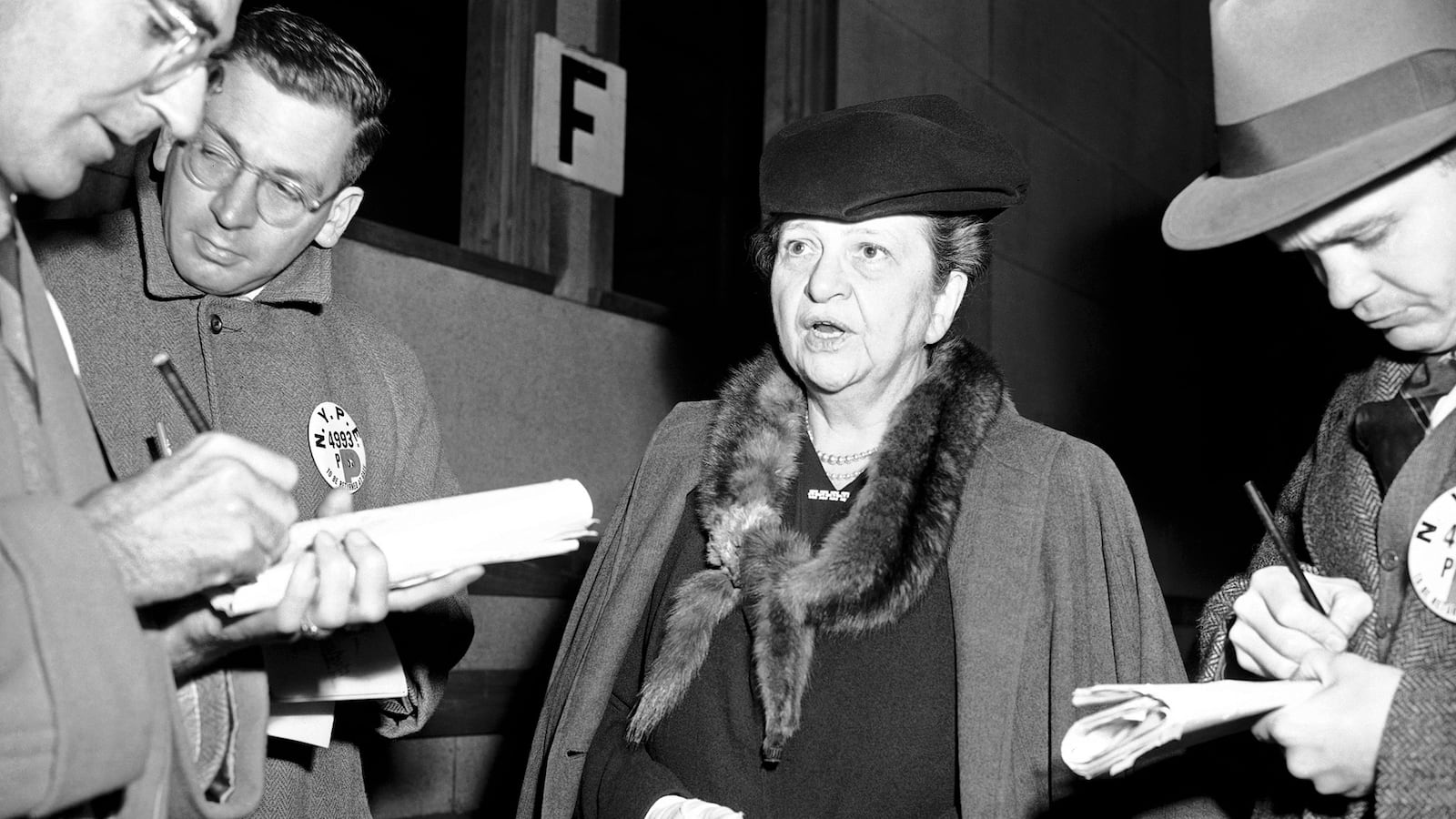Could a 1934 Washington dinner party hold the key to Chief Justice John Roberts’ landmark decision on the Affordable Care Act?

In late 1934, President Franklin D. Roosevelt had been in office more than a year and decided to move forward on what would become his greatest domestic achievement: Social Security. He assigned his secretary of labor, Frances Perkins, the first woman ever to serve in the Cabinet, to lead the way on designing the program.
But Perkins was worried. The Supreme Court was moving toward a narrow interpretation of the Commerce Clause that would invalidate many of the great achievements of the New Deal. Soon that would include the National Recovery Act, the capstone of FDR’s famous First Hundred Days in 1933.
(It would be another four years before Justice Owen Roberts—no relation—would famously switch sides and the Court would begin reversing itself, partly in response to FDR’s 1937 “court packing” scheme.)
Perkins went to dinner at the home of someone lost to history and recalls in her memoirs that she bumped into Justice Harlan Fiske Stone there.
When Perkins expressed worry about whether an old-age and survivors insurance program would pass constitutional muster, Stone, a Republican appointee to the court and future chief justice, replied: “The taxing power of the federal government, my dear; the taxing power is sufficient for everything you want and need.”
Stone’s point was that if Social Security or anything else Perkins might cook up was financed by a tax, it was permissible under the Constitution, especially since the original taxing power had been bolstered by the 1913 adoption of the Sixteenth Amendment, which legalized a federal income tax.
The other laws being invalidated in that era—industrial codes, minimum wage, safe working conditions—were entirely unrelated to taxation and thus not constitutional for the Court’s conservatives. So even if Perkins’ plan weren’t an income tax as specified in the Sixteenth Amendment, it was fine and no different than, say, pre-Prohibition federal liquor taxes.
This was a no-brainer for the right-wingers of the era. Not only was the Social Security Act of 1935 not overturned, but the very conservative court of that period wouldn’t even accept it for review. The taxing power was so clear in the case of this social insurance legislation that it wasn’t even worth arguing about.
Then, as now, there was some sales deception involved. Social Security was sold by FDR as a social insurance program where each employee paid premiums into a personal retirement fund; in truth, it’s financed by a payroll tax and the money collected goes to today’s retirees, not the workers who paid in. Obamacare was sold as being funded by a “mandate”; in truth, it’s like a cigarette tax, as the chief justice wrote, designed not so much to raise revenue as to change behavior.
In this landmark case, National Federation of Independent Business vs. Sebelius, a majority of the court rejected the argument that the individual mandate was constitutional under the Commerce Clause, and four of the conservative justices went to great pains in their dissent to argue that the mandate wasn’t a tax.
The fallout is rich with irony. The Wall Street Journal editorial page—on the same page it excerpted the dissent saying that the mandate wasn’t a tax—depicted Obama as a liar for saying exactly that throughout his presidency. Without knowing it, the Journal had Obama on the same team as Scalia, Kennedy, Thomas and Alito.
Even though they hate Roberts’ decision, Republicans on the campaign trail have immediately embraced the legal reasoning they despised—that the mandate is a tax—to fashion a political attack.
Meanwhile, conservative legal activists are now saying that despite upholding the Affordable Care Act, Sebelius may join Lopez (a gun control case) and Morrison (a violence against women case) as threats to the modern interpretation of the Commerce Clause.
Not to worry. While the Medicaid part of the decision could be problematic, it’s unlikely that the failure of Roberts to invoke the Commerce Clause will harm the social safety net in future cases. The “taxing power, my dear” notion will remain influential for open-minded justices like Roberts.
After the dinner party, Frances Perkins went to FDR and swore him to secrecy on the advance opinion from the court, but Justice Stone’s view gave the Roosevelt administration more confidence as it moved forward with what would become the most popular and successful social program in American history. The Affordable Care Act is the completion of the “cradle to grave” insurance coverage that Roosevelt envisioned when he launched Social Security.
Unless Mitt Romney wins, we will have ended discrimination against sick people in our time—an historic achievement that wouldn’t have been possible without an obscure constitutional argument over taxes.




